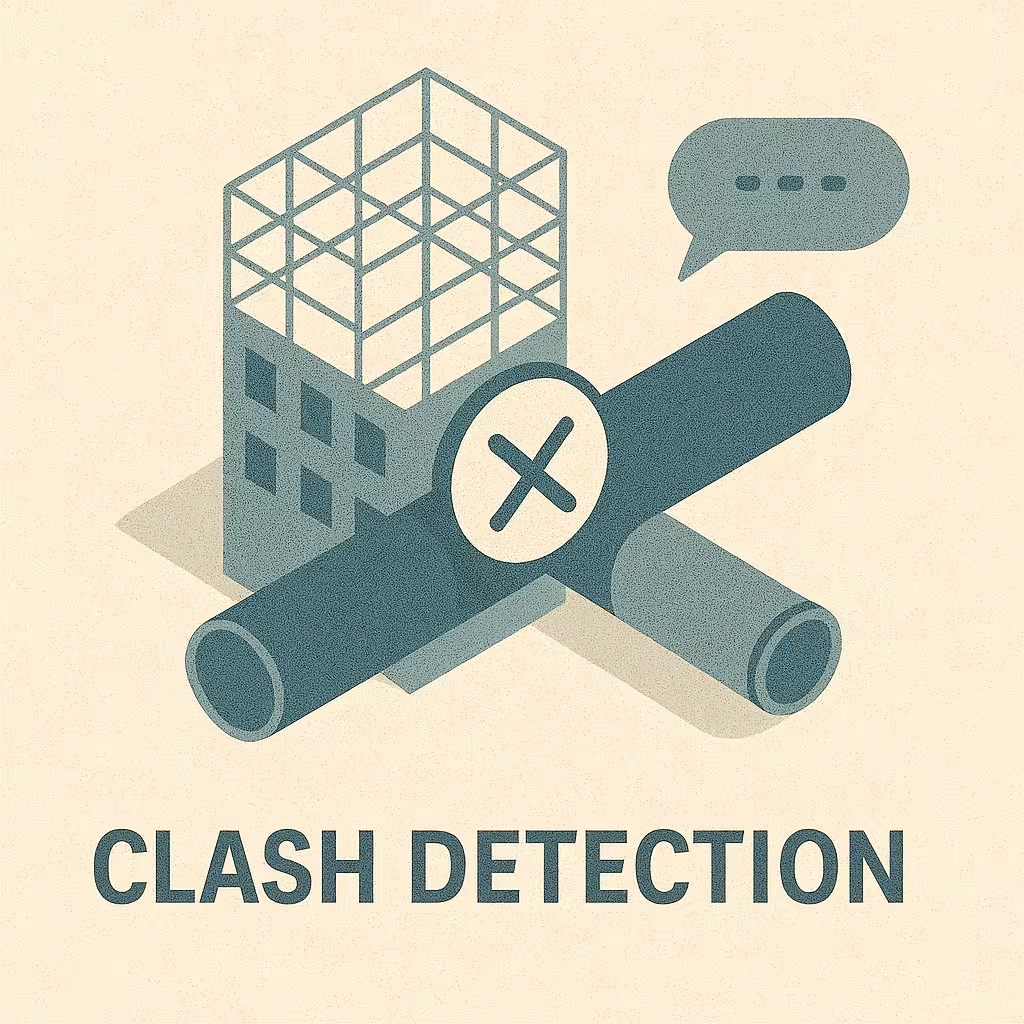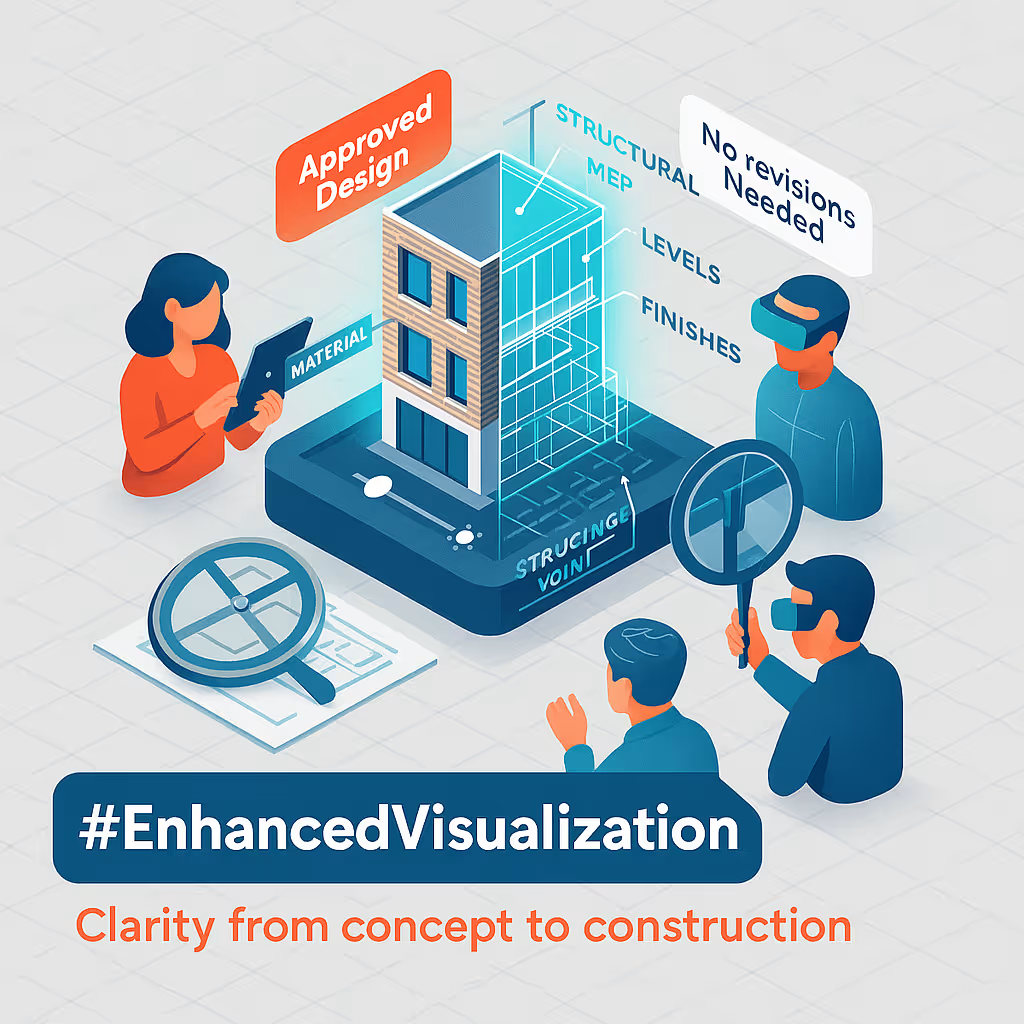Reduced Risk
Proactively identify and mitigate project risks before they impact schedule, budget, or quality.
BIM provides the foresight and control needed to manage risk effectively across the project lifecycle. Our workflows proactively identify potential issues in design, coordination, and execution—allowing teams to respond before risks become problems.
By leveraging the power of information-rich models and automated checks, we help you avoid costly surprises and maintain greater control over project outcomes.

How We Do It
- Proactive Issue Identification - We use clash detection and model QA processes to uncover design issues early, before they become expensive problems in the field.
- Standardized Workflows - We standardize deliverables and model governance for consistency, reducing human error and ensuring reliable information.
- Construction Simulation - We support scenario planning and 4D construction simulations to identify logistical challenges and sequence conflicts before breaking ground.
- Accountability Systems - We track issues, updates, and responsibilities to ensure accountability and maintain a clear record of risk management activities.
Key Risk Categories We Address
Design Coordination Risks
Spatial conflicts between building systems, inadequate clearances, and constructability issues.
Schedule Risks
Sequence conflicts, unrealistic timelines, and resource allocation challenges.
Cost Risks
Inaccurate quantity takeoffs, scope gaps, and change order exposure.
Safety Risks
Construction hazards, maintenance access issues, and emergency planning gaps.
Our Risk Management Process
Risk Identification
We systematically review models and project documentation to identify potential risks across all disciplines and building systems.
Risk Assessment
We evaluate identified risks for severity, likelihood, and potential impact on project objectives and stakeholder requirements.
Risk Response Planning
We develop specific strategies to address each significant risk, from design modifications to process improvements.
Implementation
We implement risk mitigation measures through model updates, coordination activities, and workflow adjustments.
Monitoring and Control
We track risk status throughout the project and continuously identify new risks as the project evolves.
Why It Matters
Fewer Surprises
Early detection of conflicts and issues eliminates construction surprises and disruptions that can derail project timelines and budgets.
Enhanced Safety
Improved visualization and planning capabilities enable better safety planning and hazard identification before construction begins.
Reduced Legal Exposure
Better contract compliance and documentation reduce legal exposure and potential for disputes between project stakeholders.
Stakeholder Confidence
Transparent risk management processes build stronger stakeholder confidence in project outcomes and team capabilities.

Risk Management Standards & Best Practices
Our risk management processes align with ISO 19650 information management standards, ensuring comprehensive governance and traceability throughout the project lifecycle.
We implement risk management principles and guidelines from ISO 31000 to systematically identify, assess, and mitigate project risks at all levels.
Our BIM Execution Plan framework includes comprehensive risk identification and management protocols tailored to each project's specific requirements.
We utilize the Level of Development specification to ensure appropriate model detail for risk assessment at each project phase, preventing information gaps.
Related Services
Minimize Your Project Risks
Don't let unexpected issues derail your project. Contact us to discuss how our risk management approach can help you achieve more predictable, successful outcomes.
